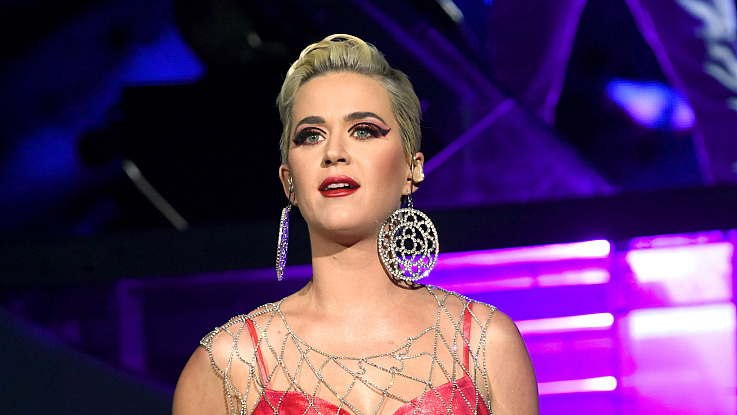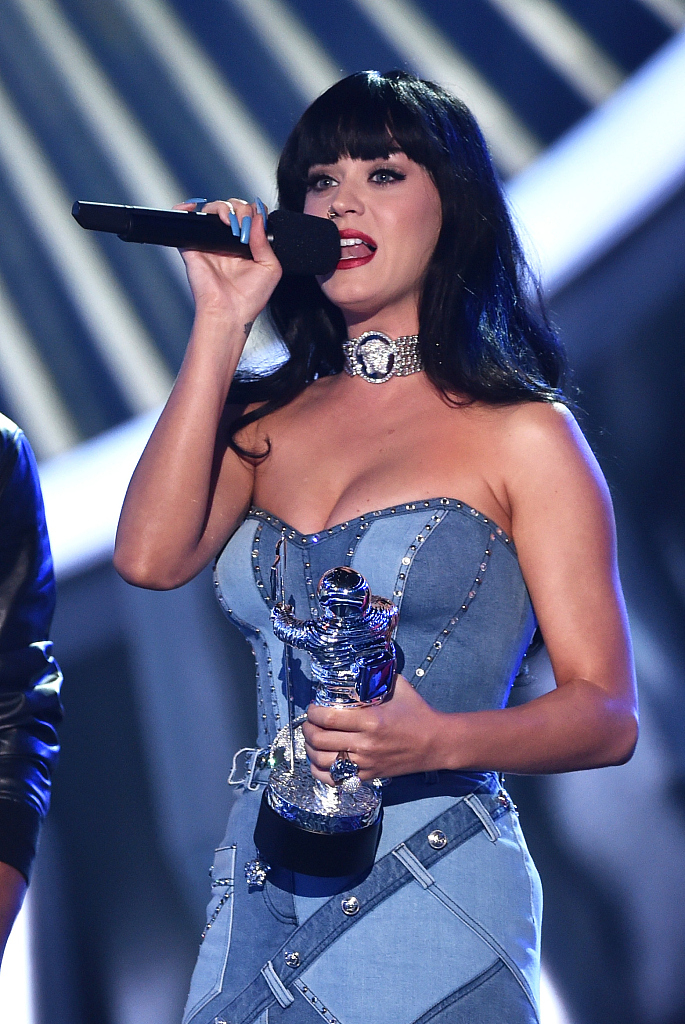

Katy Perry performs during the 2019 Coachella Valley Music And Arts Festival in Indio, California, U.S., April 14, 2019. /VCG Photo
The penalty phase of a copyright infringement trial over Katy Perry's hit "Dark Horse" opened on Tuesday with attorneys for the creators of a Christian rap song telling jurors that the pop superstar's 2013 song earned 41 million U.S. dollars overall.
The figure will be a key point of contention in determining how much Perry and her collaborators owe the makers of the 2009 song "Joyful Noise." Most of the dispute will center on the 31 million U.S. dollars Capitol Records received from the song. The label contends that after factoring in costs, its profit was a mere 630,000 U.S. dollars.
Perry's lawyers say her "Dark Horse" earnings amounted to 3.2 million U.S. dollars, minus 800,000 U.S. dollars in costs.
"I don't want to give away any spoilers here, but some of the costs, get ready to roll your eyes," said attorney Michael Kahn, who represents "Joyful Noise" artist Marcus Gray.

Singer Katy Perry accepts Best Female Video for "Dark Horse" during the 2014 MTV Video Music Awards at The Forum in Inglewood, California, U.S., August 24, 2014. /VCG Photo
Capitol Records defense attorney Aaron Wais said during opening statements that the old adage about spending money to make money is true with songs such as "Dark Horse."
"What makes a Katy Perry song profitable? Katy Perry," Wais said.
Testimony about Capitol Records' costs in creating and promoting "Dark Horse" will begin on Wednesday.
On Monday, a jury returned a unanimous verdict that found the pop hit copied elements of "Joyful Noise," a song Gray released under the stage name Flame.
"Dark Horse," a hybrid of pop, trap and hip-hop sounds that was the third single of Perry's 2013 album "Prism," spent four weeks atop the Billboard Hot 100 in early 2014. It earned Perry a Grammy Award nomination and was part of her 2015 Super Bowl halftime performance.

Katy Perry performs live during the NCAA March Madness Music Series at The Armory in Minneapolis, Minnesota, U.S., March 2019. /VCG Photo
While copyright infringement claims are common in music, they rarely result in such losses for high-profile artists.
A jury in 2015 returned a multi-million verdict against Robin Thicke and Pharrell over their 2013 hit "Blurred Lines."
The judgment, which remains on appeal, was in favor of the children of Marvin Gaye, who sued alleging that "Blurred Lines" copied from their father's hit "Got to Give It Up."
A jury on Monday found that Katy Perry's 2013 hit "Dark Horse" improperly copied a 2009 Christian rap song in a unanimous decision that represented a rare takedown of a pop superstar and her elite producer by a relatively unknown artist.
The verdict by a nine-member federal jury in a Los Angeles courtroom came five years after Marcus Gray and two co-authors, first sued in 2014 alleging "Dark Horse" stole from "Joyful Noise," a song Gray released under the stage name Flame.

Copyright © 2018 CGTN. Beijing ICP prepared NO.16065310-3
Copyright © 2018 CGTN. Beijing ICP prepared NO.16065310-3